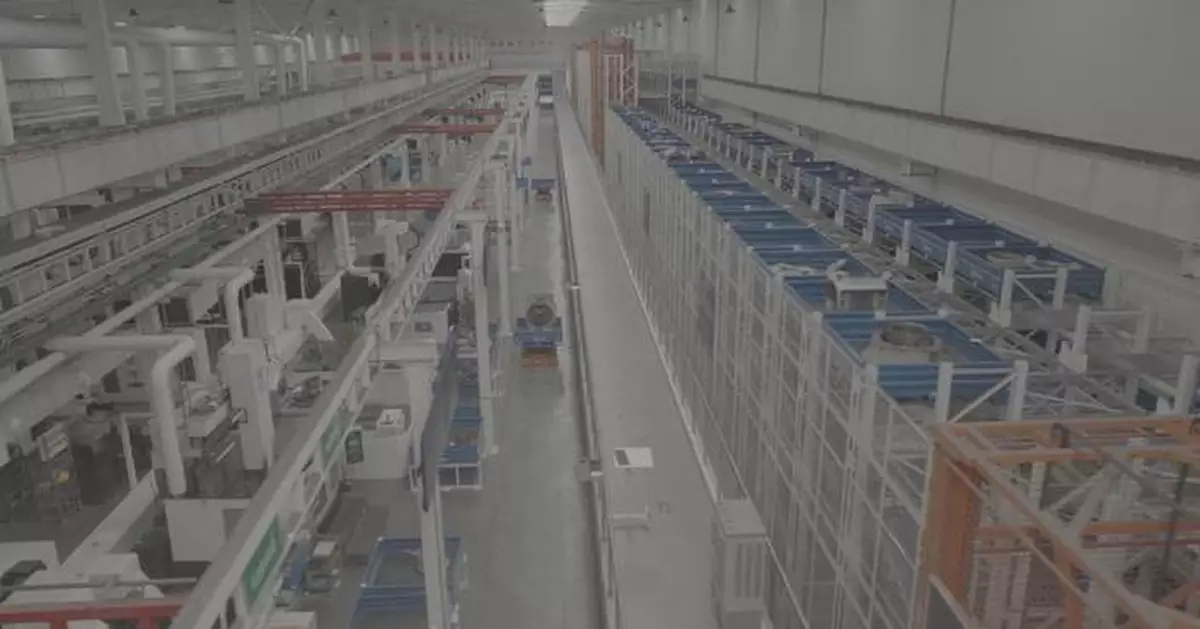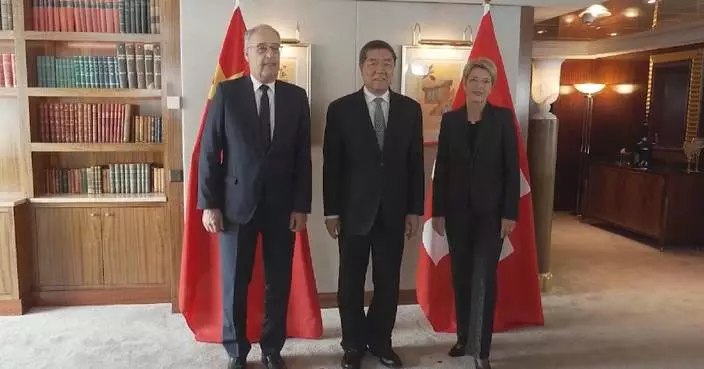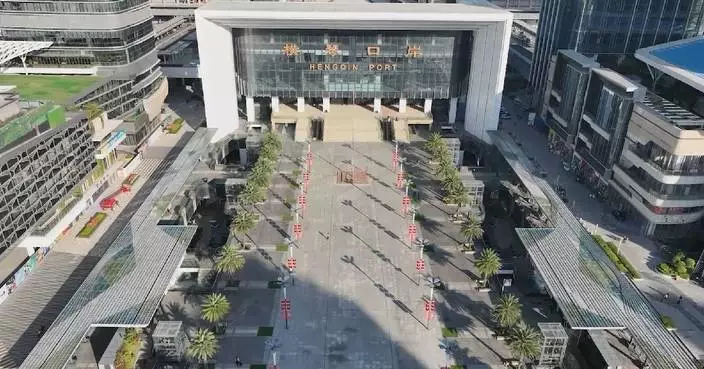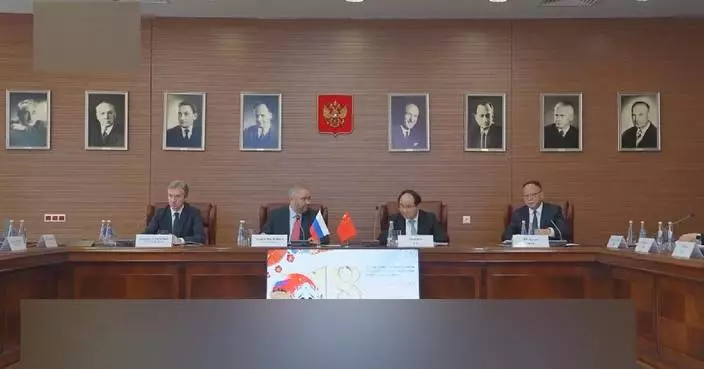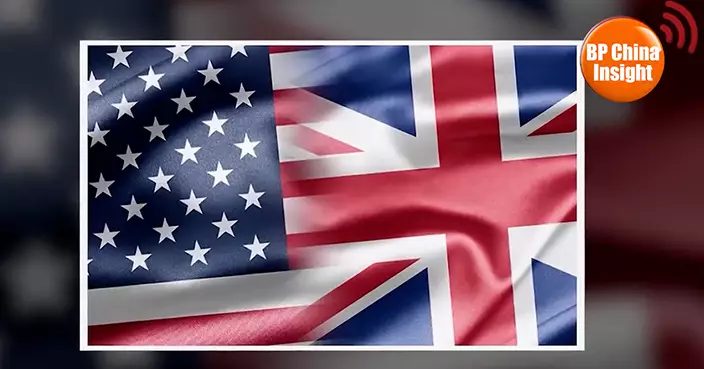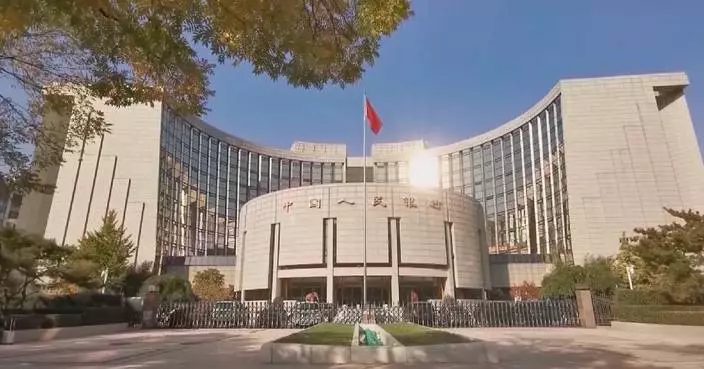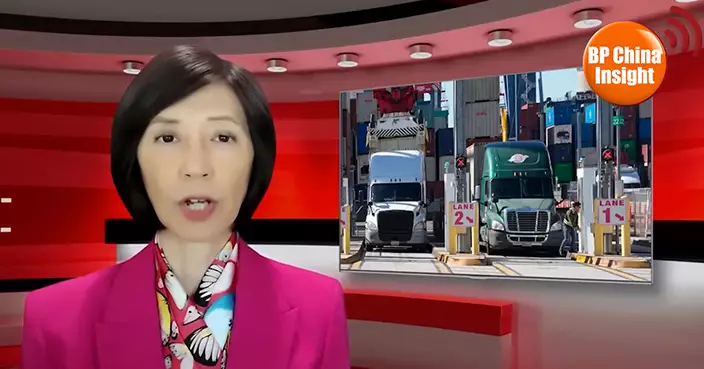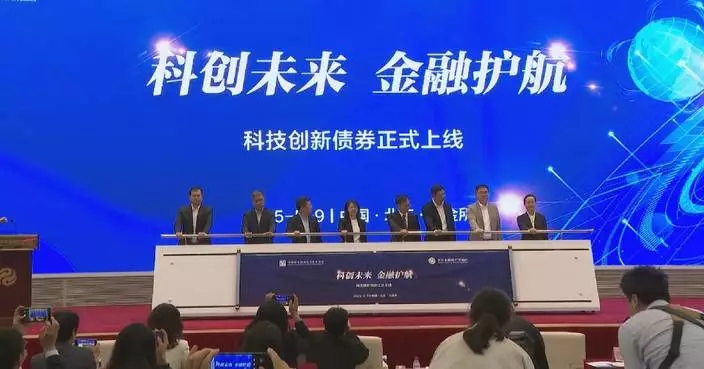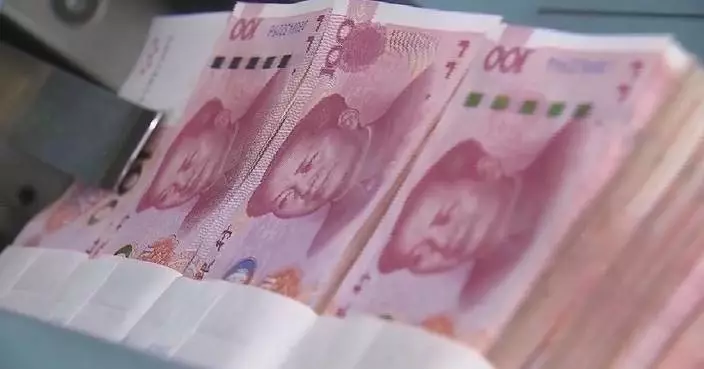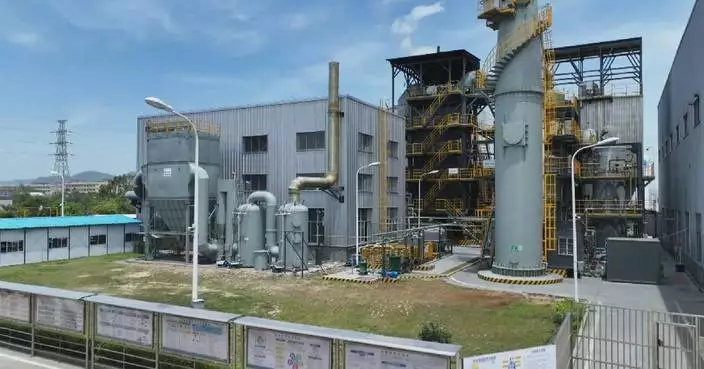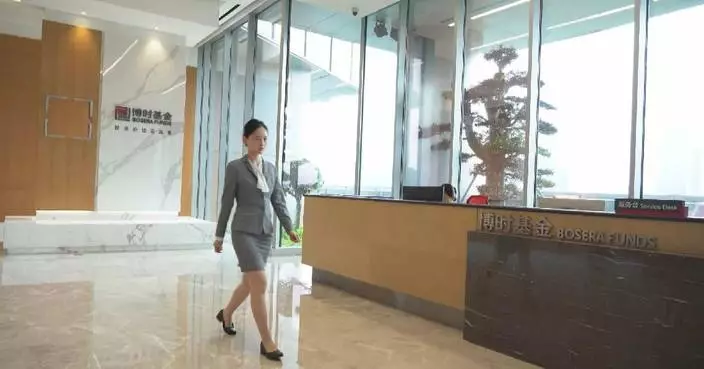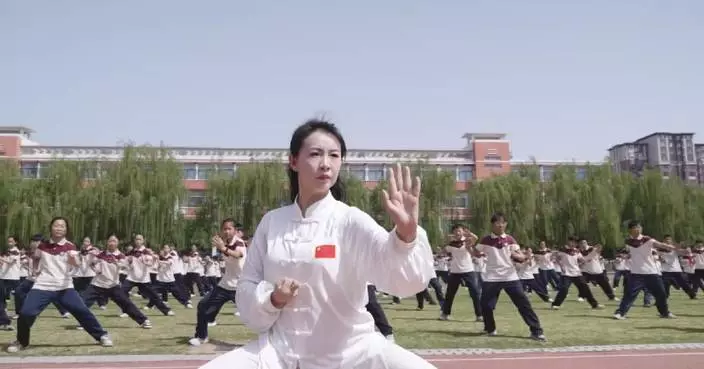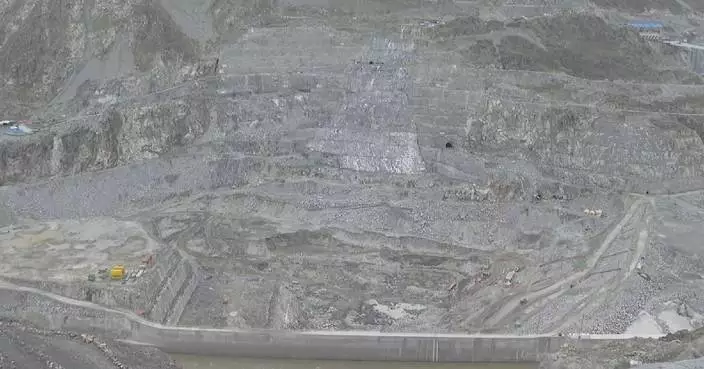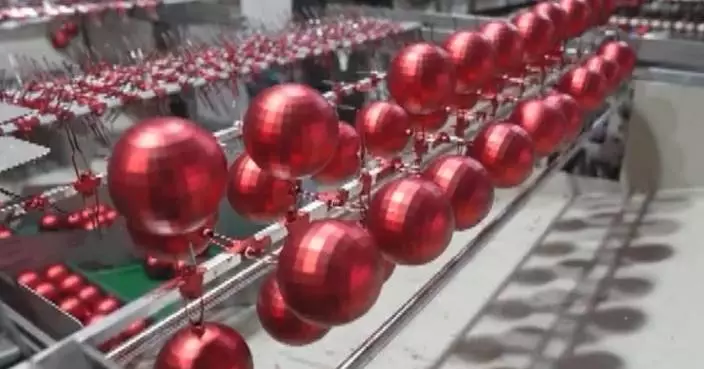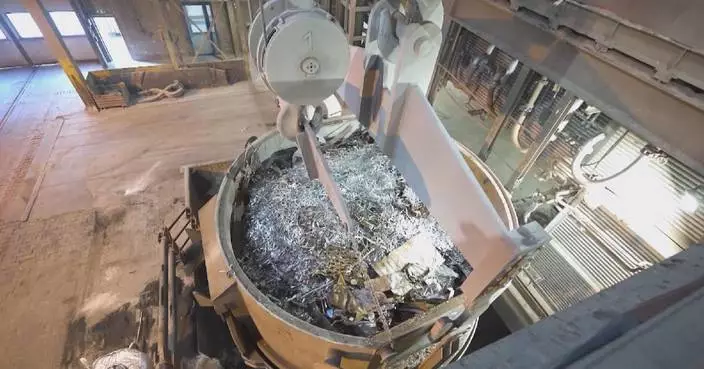China's AI-powered factories are driving the digital transformation of the manufacturing industry, marked by the rapid rise of "lighthouse factories," the world's most advanced production facilities.
This year, the World Economic Forum recognized 189 lighthouse factories worldwide, with an impressive 80 based in China.
One of them is a chiller factory operated by Chinese home appliances maker Midea Group in southwest China's Chongqing Municipality, which has leveraged AI technologies to streamline complex processes, and enhance design and planning efficiencies.
The factory specializes in large central air conditioning systems, widely used in airports and industrial plants, with 80 percent of its products customized. To meet rising demand and the shift toward tailored orders, it integrates AI algorithms with its self-developed chiller selector data platform and smart management system, to optimize selection and design.
According to Sam Luo, research and development director of Midea Building Technologies Chiller Product Company, once they know a client's needs, they will input data into the system, which has significantly shortened product design time from at least a week to within an hour.
"This boosts efficiency, reduces error rate, and makes it easier for standardized production later on," he added.
Meanwhile, technicians use augmented reality (AR) glasses to efficiently complete hundreds of intricate wiring tasks in the production of core components.
The AR technology also assists in technician training, said Huang Xuesong, manufacturing center director of Midea Building Technologies Chiller Product Company.
"This technology helps our employees learn skills more quickly. It helps improve the wiring pass rate by 30 percent. What used to take a skilled worker about 30 to 45 days to master now takes basically seven days," he said.
Inside the factory's smart production workshop, an advanced digital management platform uses big data and simulation technologies for real-time monitoring, while automated equipment precisely allocates materials.
The plant also utilizes industrial robots for welding large components and deploys numerous sensors to collect data, alongside advanced AI technologies such as machine learning, to optimize production processes.
Local officials said the Midea factory's innovations in smart manufacturing are crucial for stimulating digital transformation among other enterprises across Chongqing.
"Midea's 'lighthouse factory', as the municipality's first lighthouse factory, sets a great example for other small and medium-sized enterprises and the whole industrial chain, to apply AI across multiple scenarios, to boost the overall competitiveness of Chongqing's manufacturing businesses," said Zuo Yijun, director of intelligent technology division at Chongqing Municipal Economic And Information Commission.
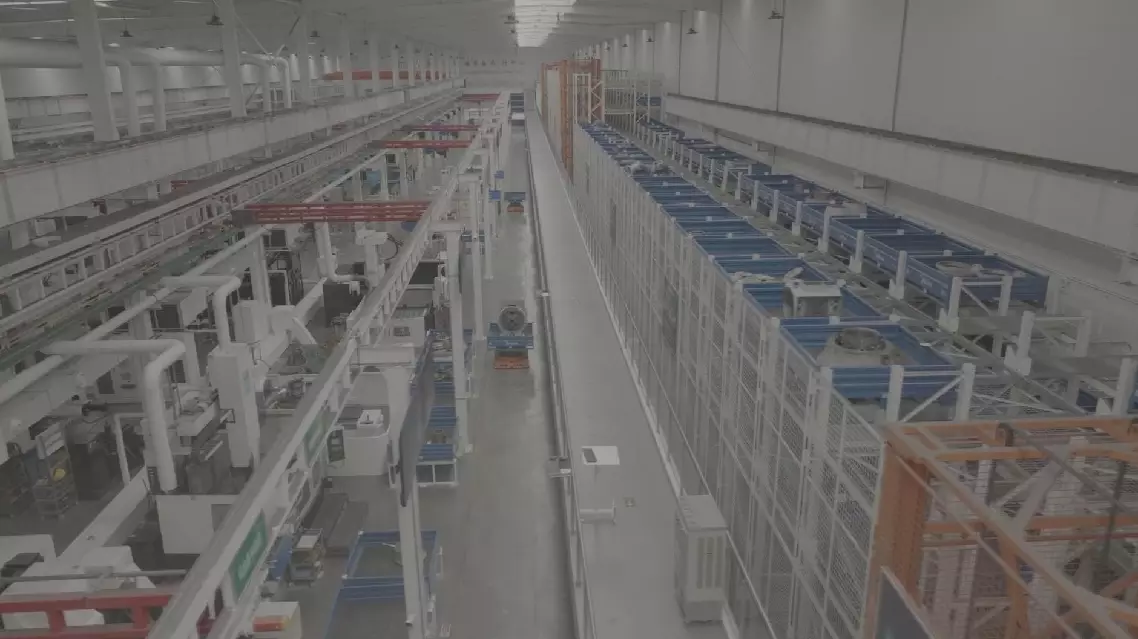
China's AI-powered factories drive digital transformation in manufacturing
Experts have denounced U.S.-initiated trade wars for their detrimental impact on the Global South, while applauding China's resolute stance for revitalizing momentum and restoring confidence in global trade.
Speaking with China Global Television Network (CGTN), experts delved into the far-reaching consequences of U.S. tariff policies on developing countries, highlighting China's decisive actions as a counterbalance to U.S. President Donald Trump's trade approach.
Yazini April, executive director of the Global South-North Centre, warned that the suffering of Global South countries amid global tariff tensions has been largely ignored.
"In terms of what the impact is in the Global South. I think that the challenge also is that the focus of the tariffs has really been on countries like Canada, the EU, the pushback with those countries. So you have your Global South countries kind of left out of the whole discussion. And they say when the elephants fight, the grass suffers. So they have been the grass suffering," she said.
Sudheendra Kulkarni, former director of operations in the Indian Prime Minister's Office, emphasized China's pivotal role amid global trade tensions and praised its firm pushback against the U.S.'s unjust tariff measures.
"It is an act of bullying. The countries around the world can be categorized in three categories, those who bully, those who get bullied and those who refuse to get bullied. Trump belongs to the first category, the country that bullies, and China belongs to the third category, a country that refuses to get bullied. And it's because China has stood up that you see how quickly Trump has tried to change his own stance. 90-day pause for tariffs on all the countries in the world. It happened only because China stood up," said Kulkarni.
Echoing Kulkarni's view, Muneer Kamal, secretary general and chief executive officer of the Pakistan Banks Association, highlighted that China's confidence stems from its growing self-reliance in technology.
"China is part of those countries would refuse to get bullied and there are good reasons why China today refuses to. Number one, Mr. Kulkarni also highlighted this, China today, maybe 10 years back it was a different story, but China of today does not depend on technology stack of United States of America. Every other country is, not China, they have covered the gap and they are doing very well. And because of this technology gap is not there between China. They can afford to play this game with a lot of confidence," Kamal said.
Looking ahead, Einar Tangen, a senior fellow at the Taihe Institute, urged nations to move beyond division and embrace shared values rooted in rational cooperation.
"It's not about creating entrenched interest, south versus north. That's how we got into these problems. 600 years of colonialism where they said we're superior and you simply bow to our needs. We need to go back to some sort of rationality where civilization, as opposed to empire values, are in fact put in place," he said.
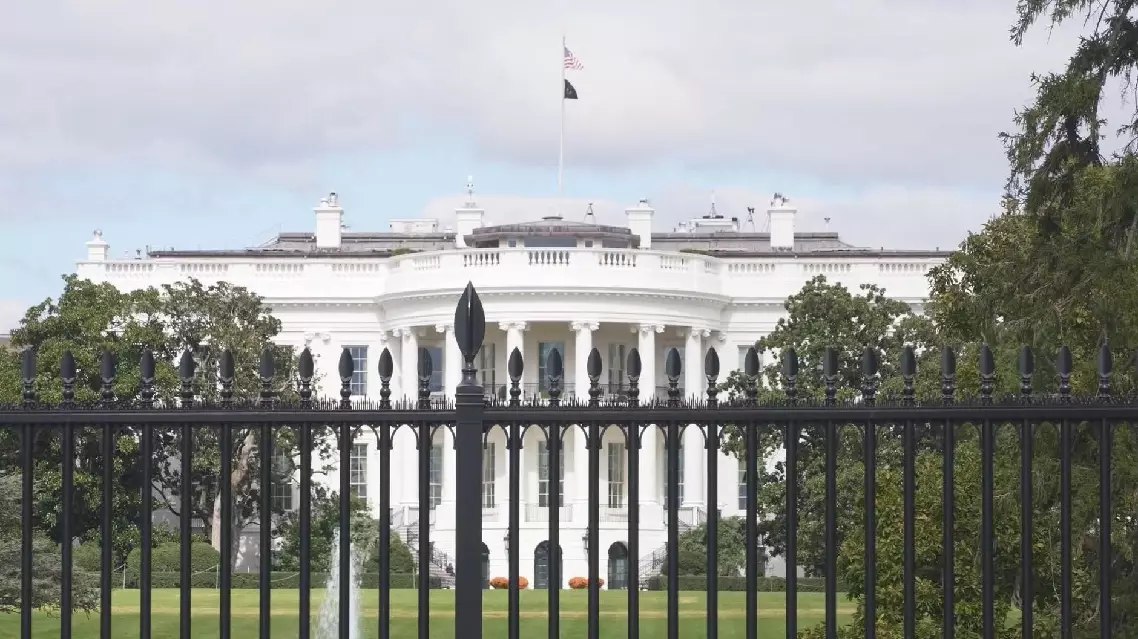
China's firm stand against US tariffs inspires confidence in Global South: experts



